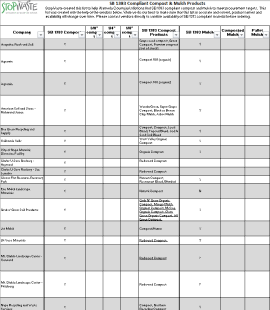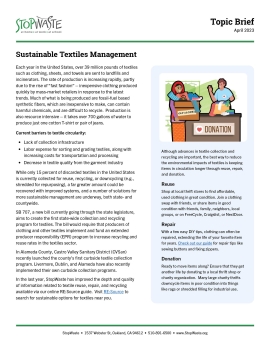Resource Library
- | 06/02/2023
California Senate Bill 1383 went into effect January 1, 2022 aiming to reduce organic materials going to landfill by 75% by January 1, 2025. The law also set targets to recover edible food that would otherwise be disposed and donate it to feed people. In a recent article, WasteDive covers how local governments are implementing SB 1383 food recovery requirements in Alameda County and beyond.
Read More A direct service provider is a person, company, agency, district, or other entity that provides a service or services to a jurisdiction, pursuant to a contract or other written agreement. Examples include waste haulers, landscape contractors, school districts, and anyone with a written agreement to procure compost and/or other products on behalf of an affected jurisdiction.
Read More Topic Briefs
Topic BriefsMany common items in our homes such as leftover paint, pesticides, cleaners, batteries and e-waste can be hazardous to humans and pets when handled or disposed of improperly. Because hazardous waste cannot be disposed in landfills, a variety of free, local options are available through the Alameda County Household Hazardous Waste (HHW) program and participating drop-off centers.
Read More
 Topic Briefs
Topic BriefsEach year in the United States, over 39 million pounds of textiles such as clothing, sheets, and towels are sent to landfills and incinerators. The rate of production is increasing rapidly, partly due to the rise of “fast fashion” – inexpensive clothing produced quickly by mass-market retailers in response to the latest trends.
Read More
